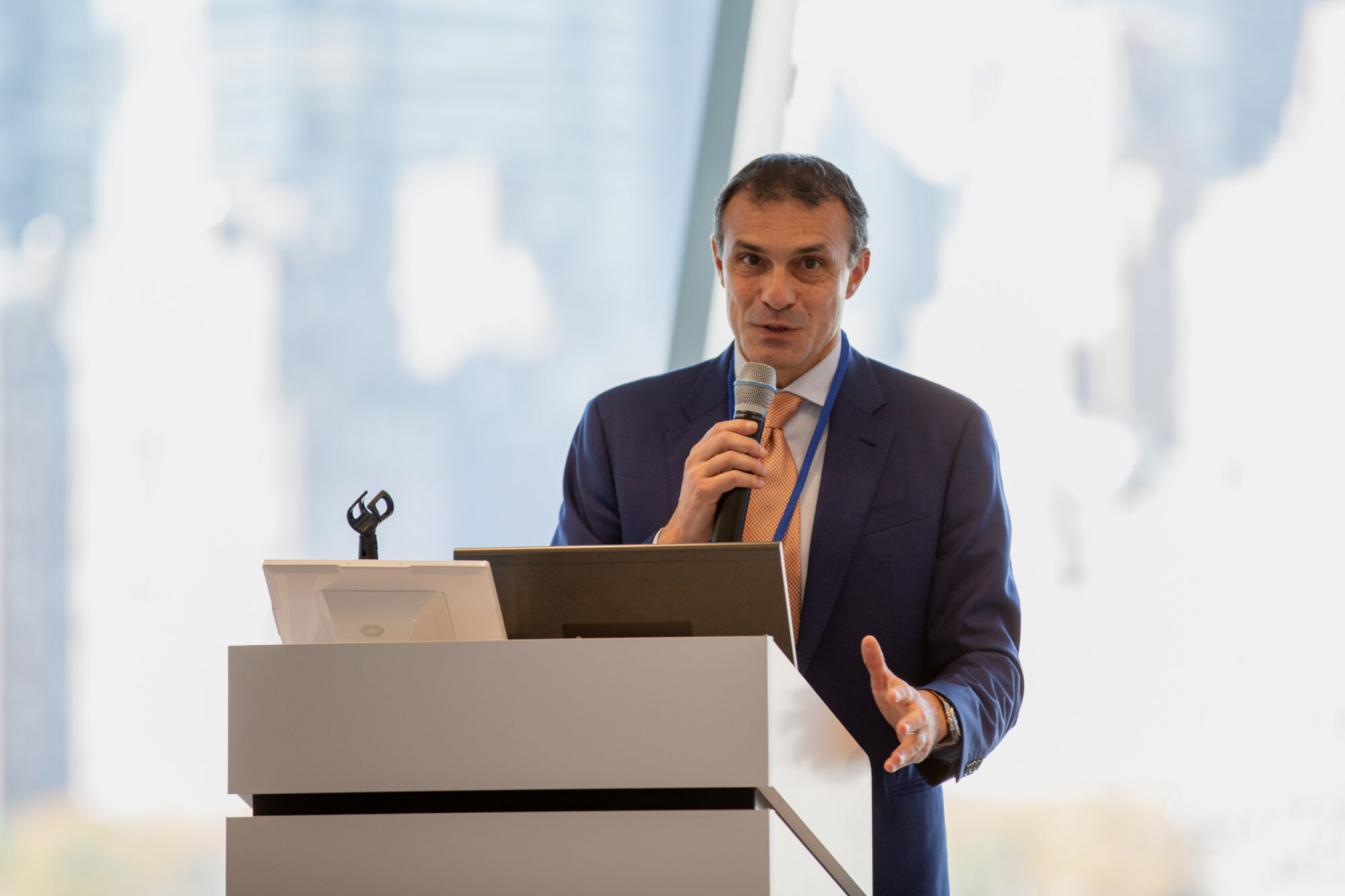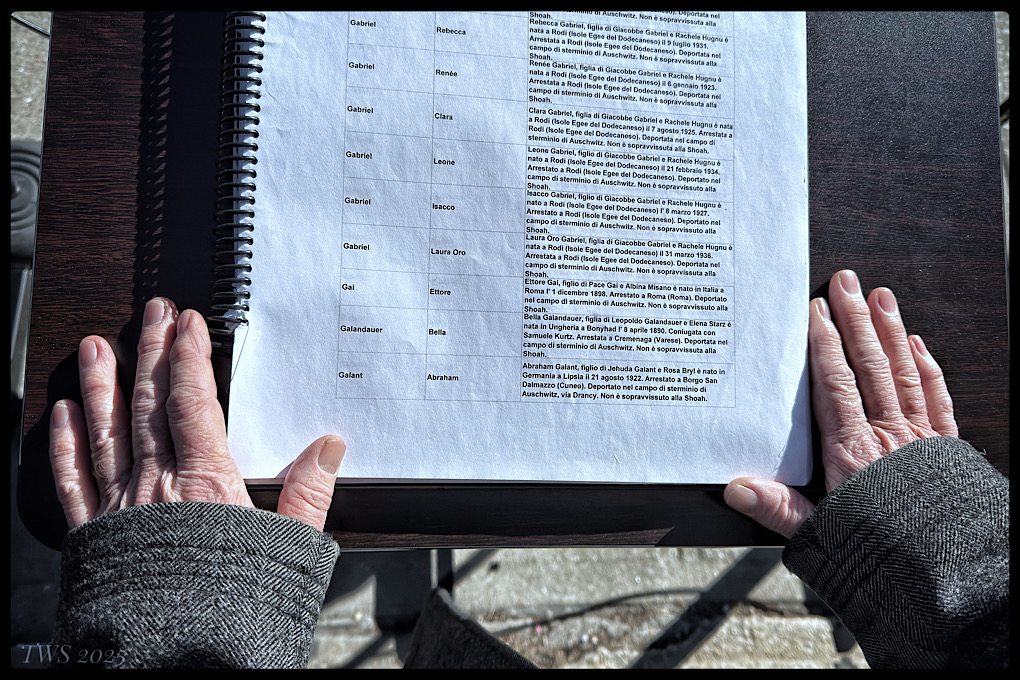In the brisk chill of a January midday sun, a row of lecterns with microphones sits in front of the Italian consulate with dozens of people young and old lining up behind them, waiting for their turn. Each speaker reads names, perhaps a dozen, before the next one picks up where they left off. They are the names of the nearly 10,000 Jews who were deported from Italy and Italian territories during the Holocaust, and they are read today in front of the Consulate in observance of International Holocaust Remembrance Day, which this year marks the 80th anniversary of the liberation of Auschwitz. “Reading every single name is so important. Each name is not just a number,” says Fabrizio Di Michele, the Consul General of Italy in New York. “It’s an individual’s story, with a family.”

The event at the consulate is organized with the Centro Primo Levi, a New York-based organization that nurtures education and debate on holocaust survivor Primo Levi’s work and Italian Jewish history. CPL contributed research in registering and verifying the names read aloud in front of the consulate for this event. “This reading ceremony is more powerful than many other events, talks you can go to,” the Consul General says, “because everybody is invited to read and be a part of it.”
Italy first officially recognized Holocaust remembrance with a law passed unanimously by its legislature in 2000, which declared January 27th to be Il Giorno Della Memoria. This motion preceded the UN’s official recognition of Holocaust remembrance by five years.

While the Consul General values this form of remembrance for its own sake, he also emphasizes its importance for the present moment. “Forgetting about history increases the risks of making the same mistakes,” he says. “And we have fewer and fewer survivors who can tell the story.”
In attendance at the reading is Stella Levi, a concentration camp survivor from the then-Italian island of Rhodes. On July 24, 1944, when she was 21, all 1,700 members of the island’s Jewish community were deported to Auschwitz via a 14-day journey by boat. “My father was ill the whole time,” she told the New York Times in 2019. “When we arrived at Auschwitz, I never saw him again, or my mother, my cousin, her baby. Dozens, hundreds of people I knew perished. Only 161 of us survived.”













